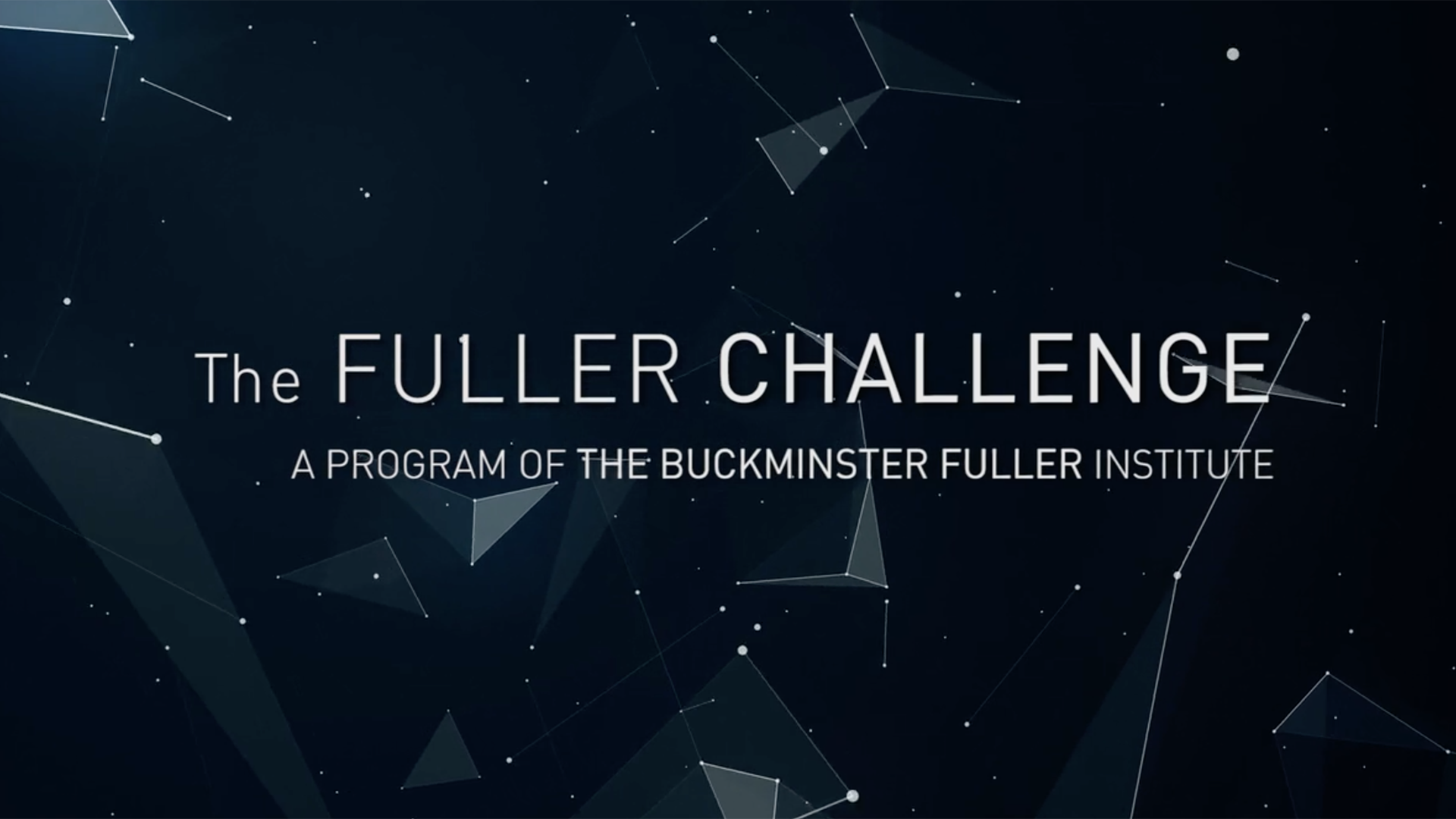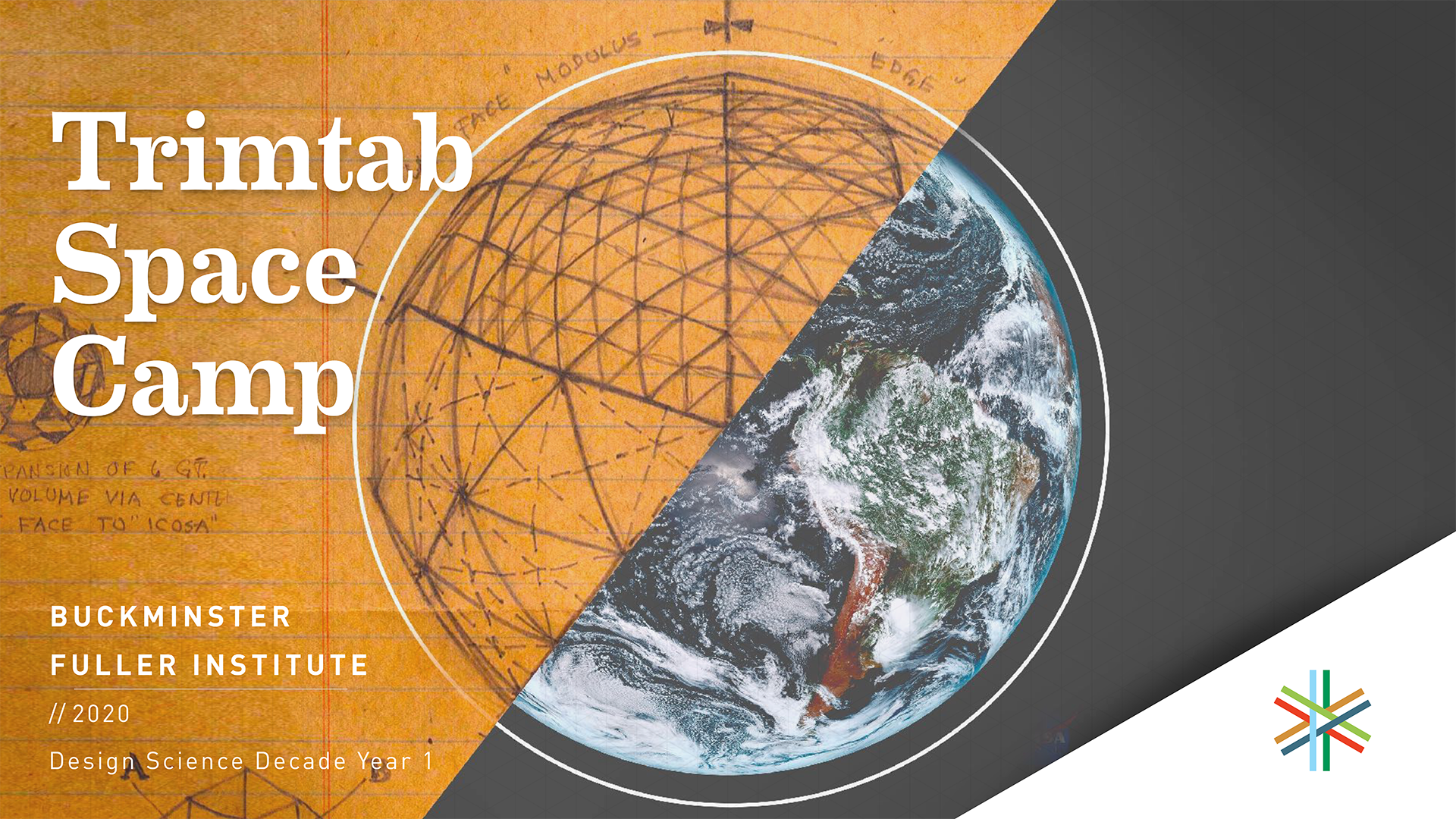The Fuller Challenge
Starting with the whole, Buckminster Fuller anticipated future trends and needs, employed the scientific method, and aligned with nature’s operating principles. He saw that this way of thinking and doing is the future of design. He called his practice design science.

A Program of the Buckminster Fuller Institute
The Buckminster Fuller Institute established the Fuller Challenge to honour the legacy of Buckminster Fuller and create a prestigious program that would encourage innovation and recognize integrity.
We wanted to draw attention and support to the thinkers and doers applying a comprehensive, whole systems approach to designing solutions to the great challenges we face today. We set our sights to inspire a new generation to take up Fuller's challenge to transform our world through design by showcasing world-class projects and celebrating the people behind them.
Buckminster Fuller demonstrated in his own life and work that the natural resources required for all of us to live in relative peace and prosperity exist.
One of the things that Bucky did for people was he inspired their individual creative agency and helped them understand that its focus needs to be on the state of the world and its transformation.
Bucky’s design practice took a comprehensive approach starting with the whole, anticipated future trends and needs, employed the scientific method, and aligned with nature’s operating principles. He saw that this way of thinking and doing as the future of design. He called his practice design science.
In 1961, Fuller put forth a challenge to the world’s architectural students to engage in a design revolution. He called it the design science decade.
- 2020-2021: Reconciliation and Commitment
- 2022-2023: Restoration and Capital-transfer
- 2024-2025: Resilience and Coming-together
- 2026-2027: Regeneration and Celebration
- 2028-2029: Rejoicing and the Circularity

Trimtab Space Camp
In this second course, Stratosphere, we’ll explore rapid prototyping with Tom Chi, Gaian systems with David McConville, ecology with Ganga Devi Braun, and sense-making to offer you new cognitive scaffolding upon which to design the future.
Trimtab Space Camp will train you to become a trimtab, using a present-day version of Fuller’s Comprehensive Anticipatory Design Science.
Comprehensive: Start with the whole. Take a whole-systems perspective to explore connections within an integrated, complex world. HOW BIG CAN YOU THINK?
Anticipatory: Think ahead. Identify, research, and interpret significant trends to gain a deeper understanding of possible futures. HOW MANY POSSIBLE FUTURES CAN YOU IMAGINE?
Design: Create intentionally. Seek and apply the elegant patterns and principles guiding the evolutionary strategies of nature. HOW DOES NATURE CREATE?
Science: Discover through experience. Generate hypotheses, iterate experiments, and rigorously verify through empirical observations. HOW DO YOU KNOW WHAT YOU KNOW?
